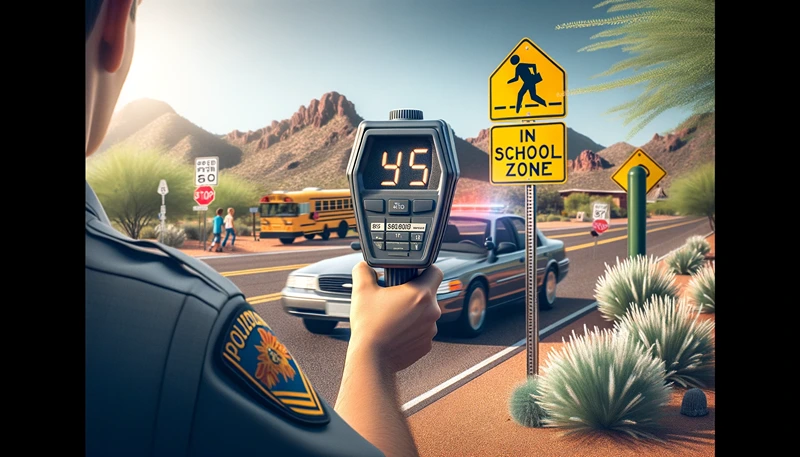
Investigative Article
Did You Get a Criminal Speeding Ticket in Arizona?
Have you recently been issued a criminal speeding ticket in Arizona? If so, it's important to understand the long-term implications of this charge. Unlike civil traffic violations, criminal speeding charges remain on your criminal record indefinitely, which can have a significant impact on various aspects of your life, including employment and insurance rates. In this investigative article, we'll delve into the details of criminal speeding tickets in Arizona and explore the potential consequences of this charge.
Speeding in Arizona: What You Need to Know
Arizona has strict laws and penalties when it comes to speeding. The state has a maximum speed limit of 75 mph on rural interstates and 65 mph on urban freeways, but the speed limit can vary based on the location and road conditions. If you are caught exceeding the speed limit by more than 20 mph or driving over 85 mph, you can be charged with criminal speeding.
The Consequences of Criminal Speeding
If you are convicted of criminal speeding in Arizona, it can have long-term consequences. Unlike civil traffic violations, criminal convictions remain on your criminal record indefinitely. This means that the misdemeanor charge can affect your employment and insurance rates for years to come. Insurance companies often review your driving history for up to five years, meaning that a criminal speeding charge can lead to increased insurance rates for a significant period of time.
In addition to the potential financial impact, a criminal speeding charge can also affect your personal life. It can make it difficult to secure certain jobs or volunteer positions, as many employers and organizations conduct criminal background checks. Furthermore, the charge can harm your reputation, as it indicates a disregard for the safety of others on the road, and may result in the loss of trust from friends and family.
What to Do If You Receive a Criminal Speeding Ticket
If you receive a criminal speeding ticket in Arizona, it's important to take the charge seriously. While it may seem like an inconvenience, ignoring it or attempting to fight it without legal representation could result in more severe consequences down the line.
The first step is to hire a reputable attorney who has experience handling traffic cases. They can review the details of your case and advise you on the best course of action. In some cases, they may be able to negotiate a plea deal or have the charges reduced. If a trial is necessary, they can represent you in court and argue your case to the judge.
Conclusion
If you have received a criminal speeding ticket in Arizona, it's important to understand the potential long-term consequences of this charge. While it may seem like a minor offense, it can have significant impacts on your criminal record, employment, and insurance rates. The best course of action is to hire an experienced attorney who can guide you through the legal process and work to reduce the charges or have them dismissed altogether.
For more information about criminal speeding tickets in Arizona, visit criminal speeding ticket Arizona.



